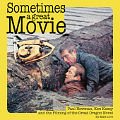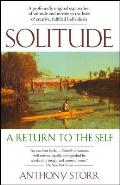
"Contemporary Western culture makes the peace of solitude difficult to attain. The telephone is an ever-present threat to privacy...and the invention of the car telephone has ensured that drivers who install it are never out of touch with those who want to talk to them."
So wrote Anthony Storr in his book Solitude: A Return to the Self. I bought it not long ago from a coastal thrift store for a quarter and read it practically in one sitting.
Solitude's publication date? Nineteen eighty-eight. I hardly need say what came next with communications. Remaining in solitude is probably the hardest thing for most people to do in Western culture today. I'll bet many of you reading this are having a very hard time doing this very thing at the coast.
Commentators frequently place the primary blame on cell phones, but really, fault lies with the addicts who habitually wield them. I say all this with a unique perspective because I live near the number-one tourist attraction in the region and routinely see tourists on the beach allowing cell phones to conquer their solitude. And I'm not talking about using them to take photographs or write poetry. I'm talking about willfully abandoning a temporary isolation to engage in what the Sex Pistols called "blah, blah, blah."
Is that you?
Couldn't they have left the phone behind in their vehicle? Apparently, even during a vacation, they cannot abide solitude, fear it altogether, cannot let go of work, or suffer from a delusion that they require the ability to respond instantly to an emergency — when in reality, they most likely couldn't provide any more timely or meaningful assistance than people did in the pre-cell-phone era. Sometimes, waiting before responding is a wiser course of action in a crisis... or everyday life. Easy access to a cell phone annihilates the ability to wait or practice patience. It also entitles some addicts to insist that professional people remain at their beck and call 24 hours a day, 365 days a year, regardless of whether the professional person is on the beach with his family for his annual vacation.
 I can distill Storr's main thesis to one sentence: self-enforced solitude for humans is healthy, desirable, and necessary for a creative life. It doesn't matter what the creative endeavor is. It could be writing, dressmaking, rebuilding old VW buses, brewing beer, or raising great children who care about the world.
I can distill Storr's main thesis to one sentence: self-enforced solitude for humans is healthy, desirable, and necessary for a creative life. It doesn't matter what the creative endeavor is. It could be writing, dressmaking, rebuilding old VW buses, brewing beer, or raising great children who care about the world.
Storr insists that creative people should carve out time for solitude to cultivate creativity even if certain creative endeavors mandate collaboration (which most do). I agree. I live alone with an old husky, Sonny, and we go to the beach two or three times a day. I also walk the neighbors' dogs and walk alone too. I experience more self-imposed solitude than anyone I know and would have never written a word for publication without it. I think by embracing solitude I've actually become a better collaborator.
While reading Solitude on the deck one Sunday afternoon, I noticed a little July sunlight fracturing the gray sky and decided to visit the beach with Sonny for a stroll and a nap.
On the sand, Sonny and I came across a couple in their mid-30s with a three-year-old boy. The father and son were happily engaged building a castle. Fifty yards away, at the ocean's edge, the mom chatted on her phone.
I found my favorite slice of eroded riprap for a pillow and fell asleep for an hour. I awoke and we headed home, passing the family. The mother was still talking on the phone but this time circling the father, child, and castle.
The wind blew some conversation fragments my way: "blah, blah, blah." Her child was laughing, playing, and creating, and his mother was completely disengaged from the moment, obliterating any chance of solitude with her family. The scene saddened me but I tried not to judge. I just want to understand this mysteriously modern trip that so many Americans have embarked upon. Where is it taking us?
Sonny and I kept moving. A few minutes later, we encountered a woman leaning against a drift log reading a fat romance novel, a real bodice ripper, from what I could glean from the cover. I also noticed her iPhone resting on a canvas tote a few inches away, poised to obliterate her solitude with a pleasant chime. It was only a matter of time.